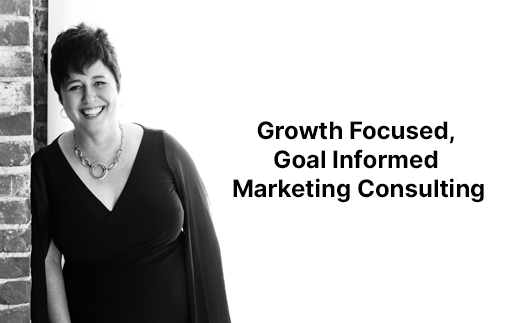As a small business owner, planning and executing a successful project (or business initiative) can be daunting. However, with the right approach and tools, you can ensure that your project runs smoothly from start to finish.
This blog post discusses ten things you should know before you plan your next project or business initiative. From defining the project’s scope (what’s included, what’s excluded) to identifying potential risks and celebrating success, we will cover everything you need to know to ensure your project’s success (which can save you TONS of money and time!).
Whether planning a small or a large-scale undertaking, read on to learn how to ensure your project is successful.
Plan Your Project in 10 Steps
1. Define the project’s scope
If you’re a service provider, you’re probably familiar with the term project scope, whether you call it that or not.
At a high level, the project scope is a clear outline of the goals and objectives of the project, including what will be delivered, by when, and to whom. A scope also details what’s included (and what’s not).
As a business owner, your project scope always needs to reflect your biggest business goals. This will help you stay focused and ensure you have a clear roadmap.
2. Identify required and optional resources
Determine what resources (e.g., people, budget, equipment, materials, tools) will be required to complete the project successfully.
Make sure you have a solid understanding of the resources available to you before moving forward.
Remember, there’s a difference between wants and needs. You may want a fancy course platform for your first course, but your budget may dictate using free tools like creating private YouTube videos and emailing the links to buyers. Private YouTube videos meet your needs and fit your budget.
Define your budget first. Then find the tools (and method) that fit your budget.
3. Create a project plan
A project plan is a document that outlines the steps and milestones needed to complete the project. It should include a timeline, budget, and any other vital details.
If it’s a small project, there’s no need to write more than a page or two. Why? Because you want a plan that’s easy to refer back to later. The best plans are a reference point to guide you through what happens next.
Want to save time and money?
Create a plan.
And then follow it.

Marketing Consulting for Service-Based Businesses
Let's hop on a call and see if our marketing consulting and strategy services are a fit for you.
4. Identify potential risks
Don’t be afraid to think about what could go wrong during the project.
When you live in a fairyland where nothing goes wrong, you’re setting yourself up for failure because you haven’t considered how you would solve potential problems BEFORE they occur.
This could include anything from delays in receiving materials to potential legal issues. It’s much easier to solve problems before they happen rather than in the throes of a disaster.

5. Assign roles and responsibilities
Clearly define who is responsible for what within the project team. Yes, even if you’re a team of one, you need to detail tasks and who will perform each task. Then, create deadlines for each task.
You do this ahead of time because it helps everyone understand their role and what is expected of them. PLUS, the added benefit is you begin to see what a reasonable deadline looks like. Whenever possible, don’t back into a deadline (e.g., have the deadline pre-set and work backward).
Give yourself enough time to complete the tasks (but don’t forget about everything else you have on your plate).
6. Communicate with stakeholders
You absolutely CANNOT plan in a vacuum. Every project includes assumptions. One of the best ways to check your assumptions is to involve other people, if for no other reason than to say, ‘hey, does this look right to you?’
Make a list of people involved in the project. Then, keep all relevant stakeholders (e.g., customers, employees, vendors) informed about the project’s progress. This will help ensure everyone is on the same page and can provide input as needed.
Refer back to the defined roles and responsibilities to help keep people focused on their primary objective(s) for success.
7. Manage your budget
Keep a close eye on your budget throughout the project to ensure that you stay on track. This may involve negotiating with vendors or finding ways to cut costs.
This is especially true when you’re buying software and paying for services. Setting an initial budget plus 20% for contingencies (because things do go wrong) will help you assess whether you can afford the project before making any financial investments.
In our course, Find the Right Marketing Tools for Your Small Business (exclusively available in our membership), we discuss how to create an effective basic budget when you’re buying marketing tools.
8. Monitor your progress
Regularly check in on the project’s progress to ensure it is on track. This may involve holding meetings with the project team or reviewing project data and metrics. Or, it may mean looking at revenue reports, conversion rates, or other automated metrics that reflect progress.
It’s essential to bake monitoring into the process at the outset. Doing so will guide you in whether your goals are measurable.
9. Be flexible and adapt as things change
Be prepared to adjust the project plan based on changing circumstances or new information. We call this ‘structured flexibility’ — as long as the project is on purpose (e.g., you’re continuing toward the same initial goal), it’s necessary to be flexible when faced with new information.
For example, if you’re engaged with a service provider (e.g., a writer, web developer, etc.), timelines and expenses could shift. The key is to stay on the overall course. Too often, businesses abandon projects too early and never learn what might’ve been, especially regarding marketing. Give things a chance to work.
10. Celebrate project success
It’s SO EASY to move on to the next thing. DON’T. Celebrating your hard work and accomplishments is critical once the project is complete. If it’s more motivating for you to work toward a goal, decide on the celebration ahead of time.
If not, plan a special afternoon walk, lunch with a friend, or other celebration within a week of your success.
Ready to Start a New Initiative?
Remember to define the project’s scope, identify the resources needed, create a project plan, identify potential risks, assign roles and responsibilities, communicate with stakeholders, manage your budget, monitor progress, adapt as needed, and (most importantly!) celebrate success. 🙌
By following these tips, you’ll be able to move forward confidently with your project and achieve your desired outcome.




